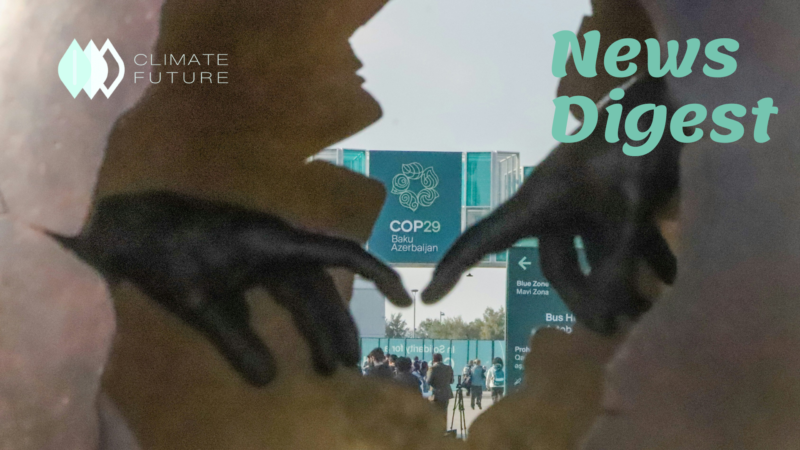Climate change: More fossil fuel investment, just ‘delusional’, warns Guterres
António Guterres spoke at the Sixth Austrian World Summit on the climate crisis. He said renewable energy was “the peace plan of the 21st century” and called to finance fossil fuel to be abandoned wholesale with the aim to create the green alternative. The UN chief warned that the window to stop the worst impacts of the climate crisis is closing fast. To keep the 1.5- degree goal of reducing global warming within reach, emissions must be cut by 45% by 2030, with net zero emissions by 2050. To reach the target, the current national commitments have to be increased by nearly 14% this decade. CO2 emissions which are related to energy even grew 6% last year. We all should work together to fight for our lives. The cheaper and more reliable options should have been developed faster and sooner, including solar and wind energy. Batteries and solar energy have fallen in price by 85%, over the past decade when wind power has become 55% cheaper. To counter today’s new economic shocks, he initiated the five-point plan for action on renewable energy. The first point is to make renewable energy technology a global public good by removing intellectual property barriers to sharing technology. Secondly, it is aimed to improve global access to supply chains for raw materials and renewable energy technology components. Thirdly, it is needed to reform the red tape which is holding back the renewable production revolution. Fourthly, a shift in energy subsidies from fossil fuels to renewable energy is important while solving the potential consequences for the most vulnerable. Finally, a tripling in investments for renewable energy is important.
Maritime students send special SOS to upcoming UN Ocean Conference
The future maritime leaders, based in the Egyptian coastal city of Alexandria, studying at the Arab Academy for Science, Technology & Maritime Transport used two powerful symbols in their video: Semaphore, another universal way to communicate on the high seas, using flags and an anchor, immediately recognizable in any language. The message is not a matter of theory for the future seafarers. It is crucial to their personal journeys to help the world realize the Sustainable Development Goals, especially on climate action (Goal 13) and life below water (Goal 14). Hailing from Djibouti, Egypt, Saudi Arabia, Mauritania and Libya, the students created their video message to the UN Ocean Conference, which will consider the issue at the top of the international agenda when it gathers from 27 June to 1 July in Lisbon. It took a week to prepare with a team of video experts and the choreographing of scores of students in maritime uniforms. The decision is to send a video message to the United Nations which is consistent with the Academy’s long-term cooperation with the world organization.
‘Revitalize our seas’ UN chief urges on World Oceans Day
Secretary-General Antonio Guterres recalled in his message that the triple crises of pollution, biodiversity loss and climate change which are threatening the health of the ocean that we all depend on ultimately. The ocean is the primary source of sustenance for more than a billion people and gives work through its industries for around 40 million employees. It produces over 50% of the planet’s oxygen. He mentioned that more than a third of the world’s fish stocks are harvested at biologically unstable levels. A huge proportion of coral reefs have been destroyed and coastal dead zones are growing from land-based pollution. In addition, plastic pollution has reached the deepest ocean trenches and the remotest islands. To achieve the objectives of the Paris Agreement on climate change and Sustainable Development Goals, urgent action is needed as a collective action to revitalize the ocean.
Stockholm+50 issues call for urgent environmental and economic transformation
The Executive Director of the UN Environment Program (UNEP) urged the participants to commit the action and shape the world. General Assembly President Abdulla Shahid mentioned that the policies we implement today will shape the world in the future. Governments and the private sector play an important role to rethink the strategies to target systematic barriers which have held back women’s participation in labor forces. The chef said that we can make success by installing gender equality practices in enforcement mechanisms, legal protections and deep structural and cultural change. The two-day international meeting concluded with a statement from co-hosts Kenya and Sweden, with a recommendation to place human well-being at the center of a healthy planet and prosperous community; by implementing the right to a healthy, clean and sustainable environment and accelerating transformations of high impact sectors. Stockholm+50 featured four sessions in which leaders made calls for strong environmental actions to drive the implementation of the SDGs and 2030 Agenda.
World Environment Day: Earth ‘cannot keep up with our demands’
The UN chief mentioned that it is crucial to safeguard the health of its atmosphere, the diversity and richness of life on Earth, its finite resources and its ecosystems. Since 1973, the day has been used for awareness raising and generating political momentum around growing environmental issues such as global warming, desertification and toxic chemical pollution. It has developed into a global action platform to drive change in both consumption behavior and national and international environmental policy. Mr. Guterres reminded that a healthy environment which provides clean water, food, medicines, climate regulation and protection from extreme weather conditions is essential for people. Nine million premature deaths are caused by pollution yearly and more than one million plant and animal species are at the risk of extinction within many decades. It is estimated that over 200 million people will have the displacement risk through climate disruption each year by 2050. He urged the governments to act first on environmental protection and climate action through policy decisions which promote sustainable progress.



